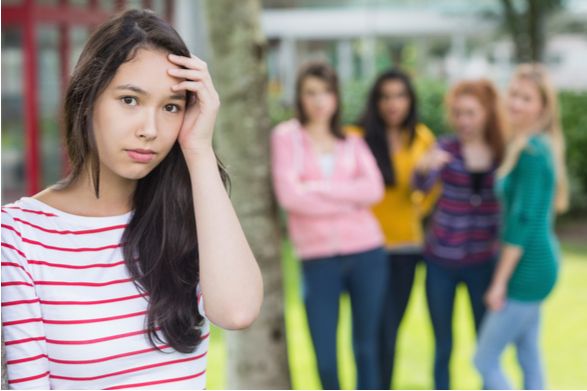In 1988, women’s studies professor, Peggy MacIntosh wrote an article detailing ways that she, as a white person, was privileged compared to her African American peers. From the content of textbooks, news and entertainment programming, to how her actions and statements would be perceived from authority figures, to the color of band-aids, she showed how being white afforded unearned benefits, and not being white meant unearned burdens.
Since then, our society has become more conscious of how our culture creates expectations for what is normal and good, and has historically favored whites, males, heterosexuals, and Christians, marginalizing Hispanics, African-Americans, women, the LGBT community, and members of other religions. Today, entertainment, news stories, commercials, and academic materials contain much greater diversity in terms of race, sexuality, and religion. This is progress in terms of inclusivity and fairness.
Yet one form of privilege has been overlooked or dismissed: the privileged afforded to those with progressive political ideologies.
In 2018, Glamour Magazine included 11 recognizable progressive leaders among their women of the year. Not one conservative was featured. Turn on any awards show or late-night comedy hour and you expect to hear progressive leaders applauded and conservatives denigrated. Fictional television dramas abound with progressive characters who are compassionate and aspirational, while conservatives are often caricatured as racist, sexist, and mean-spirited.
College administrators know it’s important to have professors from a variety of backgrounds and demographic groups to provide students with a variety of perspectives and role models. Yet campuses commonly have zero registered Republican professors. Gender studies departments, unsurprisingly, were among the least ideological diverse. The National Association of Scholars “could not find a single Republican with an exclusive appointment to fields like gender studies” among 8,688 tenure-track professors at 51 top ranked liberal arts colleges they studied.
It’s tempting to dismiss the concept of progressive privilege: Even if there is bias against conservatives in favor of progressives, some may say it isn’t as harmful as privilege based on race, religion, gender or sexuality. But while political beliefs may not be an immutable characteristic, they are part of people’s identities and belief systems, making the demonization of this identity hurtful. Moreover, progressive privilege profoundly impacts our political and policy environment, harming both conservative and progressive causes, and making political discourse more rancorous.
Conservatives frustrated by unfair treatment in the media and culture seek outlets that cater specifically to them and gravitate to leaders who call out — even fight against — a media they view as unfairly hostile. Legitimate criticism from sources assumed to be bias aren’t heard or trusted, even when it should be.
Progressive causes are also weakened by media bias which leaves them out-of-touch with many Americans. Consider the fate of the Women’s March. More than a million women took part in demonstrations after President Trump’s inauguration. Mainstream media outlets — from CNN to Time to Vogue — ran fawning coverage of the Women’s March leadership, ignoring and even chastising ignoring conservative concerns about their radical statements and associations. Two years later, when rank-and-file followers of the Women’s March learned of these same associations, they called for a leadership change and support fizzled. Had the press been more neutral and covered the March’s leadership fairly, the movement would have been a stronger, more effective force for progressive causes.
And why is it called the “Women’s March,” anyway? That’s another instance of progressive privilege. Liberal women’s groups routinely are allowed to speak for all women, ignoring the existence of women with other views. Independent Women’s Forum, the group I lead, is consistently qualified in the media as conservative or right-of-center. That’s fair. But it’s not fair that American Association of University Women, Women’s March, National Organization for Women, or National Women’s Law Center are just presented as women’s organizations, rather than progressive or liberal women’s organizations, when that’s what they really are.
Restoring civility in this era of intense partisanship begins by remembering that those on the other side are simply people who hold different points of view. They deserve to be treated with respect, even as the issues and ideas are vigorously debate. A step forward in this process would be for our leading cultural institutions — our university, entertainers, newsmakers, business and tech leaders — to wake up to the subtle biases against conservatives and for progressives that are helping drive people into two separate camps. Checking progressive privilege would help create a more truly diverse and inclusive society, where more civil and productive political discussions thrive.


